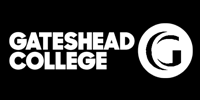The Business Of…
The past 3 weeks have seen Generator host a series of enlightening panels with some of the country’s leading industry insiders. The panels have provided vital insights for artists, producers, managers and music businesses on the hot topics of Artist Management, Music Synchronisation and Record Labels.
Kicking things off was ‘The Business of…Artist Management’ where we were joined by Tara Richardson from Q Prime who currently manages Foals, Peace and newly crowned Glastonbury Emerging Talent winner Declan McKenna; Aimmi Dunsmuir who has looked after Twin Atlantic for the last 8 years as well as Eliza and The Bear and Lee Etherington who currently manages Domino’s Richard Dawson.
Amazing Radio’s Tom Cotton was on hand to ringmaster proceedings; asking those all important questions.
Whilst talking about their careers; the panelists shared tales of both their greatest achievements and their lowest points. With a mixture of anecdotes and instructive information, the trio, whose experience of the industry varied considerably and covered all levels, helped attendees grasp what a manager is looking for and what role a manager actually plays in an artists’ career.
Next up was ‘The Business of…Music Synchronisation’ panel which took a revealing look at the world of sync and licensing. Joining us were Amelia Hartley the Head of Music at Endemol who is responsible for the music used on shows like Peaky Blinders, The Fall and Big Brother; Alex Hancock, Music Supervisor on E4 shows Skins and Misfits, and James Warburton who now works as a freelance composer having previously been Music Supervisor on Hollyoaks. Sentric Music’ Simon Pursehouse was also on hand with expert advice and guidance.
The panelists shared their first hand experience of working in sync and informed the audience on how music is selected for TV, film and adverts. Mixing essential information with personal tales, the panel, whose collective experience of music synchronisation covered all angles, helped attendees grasp what a Music Supervisor is looking for and how they can make themselves more appealing.
Last night saw the final instalment in the form of ‘The Business…of Record Labels’ where Nathaniel Cramp (Sonic Cathedral) was joined by Gareth Dobson (Wichita), Jack Clothier (Alcopop! Records) and David O’Hagan (Mercury) to discuss the changes that have taken place in finding new artists, how technological advances have affected the repertoire development of artists and essentially the best way to get the attention of both major and independent labels.
With a wealth of information being shared across all 3 events, here’s a recap of the top 5 golden nuggets from each panel:
Music Management
- Put your best track on SoundCloud and nothing else – definitely no covers. People want to hear YOUR songs not someone else’s.
- If after 2 EP’s your fanbase isn’t growing; you’re doing something wrong – get back to the drawing board.
- Focus your attentions on playing live and getting some blog coverage before you think about approaching anyone.
- If you’re inviting industry down to a gig, always make sure you give them at least a month’s notice.
- A good booking agent is worth their weight in gold – you can lose a label and manager and still have a fighting chance with a booking agent on board.
Music Synchronisation
- For your music to be used on anything, copyrights need to be cleared; the master copyright and the publishing copyright. Make sure you know who controls each of them.
- Always make sure you have a set of instrumentals for a track – 9/10 syncs are instrumental and you might miss out on a deal if you don’t have them.
- Research the person you’re getting in touch with, look at what they’re working on and email with a specific project in mind. The personal touch goes a long way, it’s very easy to spot a generic email and instantly dismiss it (Sentric’s blog on email etiquette can be found here).
- Make sure your metadata is spot on, it’s basic stuff but incredibly important (another handy blog from Sentric can be found on the subject here).
- Build sync into a release strategy, especially if you’re trying to build a buzz – directors like new things and like to be seen to be in touch with ‘new music’.
Record Labels
- First and foremost – if you want to be successful you have to be a really great artist/band. Hone your craft and be the best you can be before you approach anyone.
- Have a plan. There’s no point releasing something if you don’t have anything to follow-up with (i.e. further releases, gigs etc.).
- There are so many more revenue streams available to artists now; be creative. Think about things like merch and maximise profits. Playlists have become incredibly important and can offer another revenue stream too.
- Do your research – you will be judged on your first correspondence so make sure you don’t just blanket email lots of labels that don’t work with artists like you.
- If you’re starting a label yourself – start slowly and don’t overload yourself. Don’t just work with people because you think they will make you money, work with people who make music that you’re passionate about.
Address
Coronation House, 65 Quayside, Newcastle Upon Tyne, NE1 3DE
Telephone
07955289085
Connect with Generator
© Generator 2025 - All rights reserved.
Delivered with Cargo Creative




















